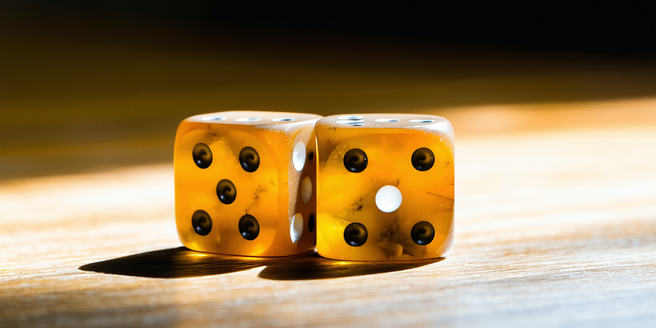Luck Vs. Skill In Promotional Games

Understanding the Role of Luck
| Game Element | Luck Factor | Impact on Outcome |
| Dice Roll | High | Randomizes Results |
| Card Shuffling | Moderate | Alters Strategy |
| Roulette Spin | Very High | Unpredictable |
| Random Loot | Variable | Resource Availability |
| Weather in Sports | Low | Challenges Players |
| Opponent’s Strategy | Situational | Adjusts Gameplay |
Skill in Gaming Context
Defining skill in gaming requires an understanding of various competencies a player brings to the table. These skills may include hand-eye coordination, strategic planning, quick thinking, and adaptability. While luck can significantly impact a game’s outcome, skill ensures that an accomplished player can consistently perform better than novices. Players often refine their abilities through practice, learning the intricacies of game mechanics, and understanding opponent behaviors. Skill is also reflected in decision-making abilities, where players must evaluate risk and reward scenarios. Recognizing patterns and making informed choices based on limited information further underscores the importance of skill. In competitive environments, skill levels the playing field by mitigating the role of random chance. Ultimately, skill anchors a game within the realm of fairness, where dedication and expertise are rewarded over mere probability.
Luck’s Influence on Outcomes
Luck plays a significant role in shaping the outcomes of many games, injecting an element of unpredictability that can dramatically alter the course of play. It ensures that every game session is unique, providing variety and excitement to players. Luck can level the playing field, granting novice players moments of triumph against seasoned opponents, thus maintaining their interest and excitement. However, an over-reliance on luck can also detract from the skill aspects of a game, potentially frustrating players who wish for their expertise and strategy to be the deciding factors in their success. Game designers strive to balance luck and skill, ensuring that while randomness exists, it does not overshadow the player’s abilities or decisions. This pursuit enriches the gaming experience, making wins satisfying and losses enlightening.
Psychology of Winning and Losing
Winning and losing in games is deeply entwined with psychological factors that influence player behavior and emotions. A win can boost a player’s confidence, reinforcing their belief in their skills and strategies, enhancing their motivation to continue playing. Conversely, losing can evoke a range of emotions from disappointment to determination, depending on a player’s mindset. Some players thrive on the challenge, viewing losses as opportunities for learning and growth. The psychological impact of chance elements can amplify emotions, as players wrestle with factors outside their control. Understanding these dynamics, game designers can create environments that encourage positive interactions, celebrating effort and improvement over mere victory. Moderating the sting of loss while maximizing the joy of achievement can lead to a more satisfying gaming experience where players remain engaged and invested.
Balancing Luck and Skill
Game design often involves striking a delicate balance between luck and skill to appeal to a broad audience. By incorporating elements of both, games can offer accessible play for newcomers and deep strategic layers for veterans. Designers leverage luck to provide equal chances of favorable outcomes, maintaining excitement and unpredictability. However, embedding skill-based challenges within these frameworks ensures that players can feel a sense of mastery and control over the game. Successful design involves careful consideration of how much influence each element has over the outcome, creating a game that remains challenging yet fair. Encouraging player progression through skill acquisition keeps the game fresh and engaging, extending its longevity beyond the immediate appeal of random chance. This balance enriches the gaming landscape, offering something for everyone regardless of their gaming proficiency.
Case Studies: Successful Games
Exploring case studies of successful promotional games provides insights into how they have masterfully balanced luck and skill. One such example is the wildly popular game Fortnite, which combines elements of random loot drops with fast-paced, skill-intensive combat. Another is the Monopoly-themed commercial promotions, leveraging familliar mechanics with an enticing luck-based prize system that encouraged massive participation. Nintendo’s Mario Kart, integrating random item boxes with skillful racing mechanics, keeps races unpredictable yet rewarding for skilled players. These games have captivated audiences by finding the sweet spot between chance and player agency; they appeal to diverse demographics and maintain long-term player interest. Each of these games has achieved commercial success by understanding the balance necessary to keep players returning, offering lessons in effective game design that harmonizes skill elements with the thrill of unpredictability.
Analysis of Game Tactics
Critical analysis of popular game tactics reveals the intricacies of how players leverage both luck and skill to achieve success. In collectible card games like Magic: The Gathering, players design decks with strategies that must adapt to the randomness of the draw while counterbalancing opponents’ tactics through experienced play. In chess, a purely skill-based game, strategic depth and foresight are pivotal, with every move carrying weight and consequences based on an opponent’s potential responses. In contrast, games like poker actively blend luck and skill, where probability calculations and psychological bluffing can influence the game’s course. Analyzing these tactics highlights how players must quickly read the situation, adapt strategies, and mitigate the inherent randomness of luck elements, proving central to mastering diverse gaming formats.
Legal Implications in Games
The legal implications of luck-based promotional games are complex and vary significantly by jurisdiction. Regulators often scrutinize these games to ensure they comply with laws designed to prevent exploitative practices, such as gambling regulations. In some areas, a game might be classified as gambling if luck significantly outweighs skill, which can impact its distribution and accessibility. To avoid legal complications, game developers must carefully structure their games to maintain an acceptable balance of chance and skill. Often, they ensure that player transactions within the game do not constitute gambling by offering non-monetary rewards or prizes based on skill performance. Navigating these legal landscapes requires both creative and legal expertise to align game goals with regional regulations while preserving player trust and engagement.
Maximizing Player Engagement
Maximizing player engagement through skill elements is a crucial aspect of modern game design, offering players a sense of accomplishment and progress. By integrating skill challenges, developers encourage repeated play, as players feel compelled to hone their abilities and achieve mastery. Games often reward skillful play with tangible in-game rewards, leaderboards, or special achievements, providing motivation for continued participation. Progression systems, which reveal new content and abilities as player skills improve, keep interest high by offering fresh experiences and challenges. Skill-based matchmaking ensures competition remains fair and enjoyable, as players encounter opponents of similar proficiency. Ultimately, incorporating these elements enhances player satisfaction, encouraging loyal communities that contribute to long-term game success through word-of-mouth and active engagement in game-related activities.
Future Trends in Gaming
The intersection of luck and skill in gaming is poised to evolve with future trends that focus on personalized and immersive experiences. Advances in artificial intelligence and machine learning may enhance adaptive gameplay, offering dynamic difficulty levels that adjust to individual player skill, ensuring continued engagement without overwhelming frustration. Integration of augmented and virtual reality technologies can create new paradigms where luck and skill intertwine more seamlessly, offering fully immersive environments where players interact with complex systems and face challenges that require both quick decisions and strategic planning. With player data analytics, games can tailor experiences to individual preferences, optimizing for balanced gameplay that captivates diverse audiences. These advancements hint at a future where modeling luck and skill becomes increasingly sophisticated, pushing boundaries of how players perceive and engage with games.
